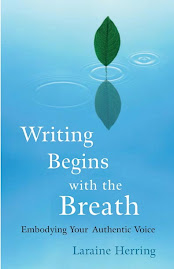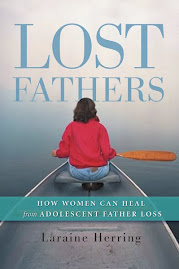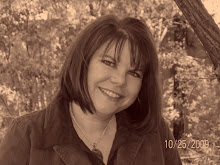
Since returning from North Carolina in August, I've been obsessed with Young Adult literature. This is a genre I never thought I'd find myself in, primarily because I really don't like to be around kids. I like them in small doses, like a glass of wine, but it's really easy to fall down the slippery slope of kid-dom from which I need a week of solitude and silence to recover. It's nothing personal. I didn't even like kids when I was a kid.
When I was desperately trying to make a living in Phoenix as an adjunct professor, I was forced to apply for artist-in-the-schools grants to make ends meet. Nobody works harder than elementary and secondary education instructors. Nobody. I continue to want to bow at their feet when I see them. They have to be at work at 7 am for bus duty. They have to clean up vomit. They have to deal with parents. They have to turn in curriculum to a mysterious M.Ed. in a corner office whose never set foot in a classroom. They have to teach to a standardized test. They have to pay for their own school supplies. It was shocking to me to walk into Phoenix schools and see what these teachers were willing to do for $25,000. They are far far better creatures than I, and should be given all the tax breaks, all the benefits, and a 50K raise for starters. They work on their feet. They have to talk at a loud outside voice all day. They have to show up evenings for band concerts and parent teacher conferences. They have to sit in meetings and figure out learning outcomes. Saints.
To that end, when I would go into their classrooms, they were often very excited to get off their feet for the 50 minutes I talked about poetry to their 3rd grade class. They were even more excited to leave the classroom to go to the bathroom (yes, they can't do that because they can't leave their students unattended). Saints, I tell you.
I spent two years as an artist-in-the-schools, and although I hope never to have to do that again, I learned a lot. The biggest thing I learned is that kids love to read if you let them. They hate to read if you tell them what they have to read and what it's supposed to mean. They don't need help making up stories. Their imaginations are on full-tilt-boogie all the time. We just need to get out of their way.
I have been breathing a deep, delightful sigh during the last four years which have not involved working with children in any way. I'm thrilled with the college life. I love my students (none of whom can have their parents call me to complain about something) and I love talking about books with them. I have no 7 am bus duty, and no No Child Left Behind. Working with adults has shown me that a love of reading comes most often from an early childhood love of books.
When I wrote The Boy In the Walls over the summer, I wasn't really sure I had any idea what I was doing. I still don't like kids. But I began to remember something most unexpected. I remembered how vital books were to me as a kid. I read dozens, literally, a week. We were at the library every few days. My favorite days at school were the book fairs where we got to take home a brand new book. I escaped into books when my dad got sick, and I dove even further into them when we moved to Arizona. I didn't have many friends, especially not in grade school and junior high. Books were everything to me. Absolutely everything. I don't know what I would have become without them.
So I realized I didn't have to want a gaggle of kids around to write for them. I just had to remember what it was like to be one. Being in my childhood home again this summer kickstarted those memories. I reread some of my favorite childhood books. I went to the bookstore and bought contemporary YA books. My writing partner, Gayle, sold a YA book and began sending me more and more YA work to read.
What was this genre?
Well, it's the fastest growing genre in fiction today. It's the most open to experimental work, and it loves magical realism and fantasy. It loves bookish narrators. It loves gawkiness and trouble, and it addresses real issues (in spite of the attempts at censorship). It has a strong narrative voice and it shows kids figuring things out on their own without helicopter parents or multiple choice questions. It treats kids like people, not like kids. It doesn't hide things from them or couch truths with morality. There's an idea. Give a kid credit for his or her own brain. Give a kid a chance to problem solve. A chance to mess things up. An opportunity to see him or herself reflected in literature. There's some powerful work.
I'm remembering what books meant to me. Why I love to read. Why I wanted to write. What a cool audience to write for then. I know them, even if I can't play Guitar Hero or text message. I know what it feels like to be on the outside. That's what I need to access. The trappings change from generation to generation, but the heart of the stories stays the same. Talk to them, not at them. Let them uncover their own beauty. Let them learn to love to read by giving them books that matter, not books that have cleared so many levels of curriculum approval that they contain nothing that matters to anyone, and so are safe, and dull, and kill any spark of imagination that might be blooming. Let them think.
I'm remembering why I do what I do, and I'm remembering it by touching my childhood again and realizing it is still inside me, no matter how many theses I've written on books, nothing compares to the books themselves. The original primary sources for a life. Harriet the Spy. Are You There God? It's Me, Margaret. Little House on the Prairie. Betsy, Tacy and Tibb. A Wrinkle in Time. Ramona the Pest. My primary sources. How cool is that?
I've spent the last month or so rewriting a novel I finished six years ago. I wrote it for an adult audience, but I've rewritten it for YA. My 15 years of teaching writing have shown me what was wrong with the novel as an adult novel. I didn't have a story -- I had a series of ideas and very cool sentences. Kids demand the story. What happened? Why? And then what? Why?
Will it sell now? I can't know. It's a much stronger novel though, now, and it addresses the same dark issues I was addressing with adults - racism, religious fanaticism, secrecy and silence. Here's chapter 1 from GHOST SWAMP BLUES. rewritten for older teens. This is Roberta du Bois, 18 year old mistress of Idyllic Grove Rice Plantation in 1859.
The sun was unusually hot for October on that morning in 1859 when I walked into Snaky Swamp, just south of our rice plantation in Alderman, North Carolina, wearing nothing but my pink feathered hat. The water was thick as wool and it clung to my skin like a net. Moccasins swam near me, skirting the top of the water, their eyes and fangs cracking the surface. I wiggled my toes in the soft mud of the swamp floor until the weight of the marshland was too much and my toes stopped moving. I walked forward into the swamp until my legs stopped lifting and I fell forward, my cheek hitting the water with a slap before sinking sinking into the blanket of algae and mosses, branches and vines, their tentacles covering my nostrils, wrapping my jaw tightly closed, my teeth fitted perfectly together until my skin fell away in clumps for the fish.
On the day of my death, my husband, Jonathon du Bois, ordered one of his slaves, my half sister Claudia, whipped. The overseer poured salt onto her open back and I screamed from the silence of the marsh. Claudia’s eyes rolled in her skull and her tongue dripped saliva onto the earth.
On the day of my death, talk of an uprising was beginning. A man named Douglass was going to be the next Moses. Jonathon believed it and took to craziness. Our plantation, our rice fields, our livelihood, depended entirely on the men and women who worked it. Depended entirely on that human property of ours, bought and paid for with United States currency, now sweating under the Carolina sun.
Idyllic Grove Rice Plantation as I knew it has long since returned to dust. It’s me who’s still around. Poking in and around the tall pines, crunching my feet over the dried pinecones just enough to make you jump. Me who drips clear water down the hallway, my nakedness shivering in the air. The house that’s there now, in the very spot where our big house used to be, is a five-room clapboard with a black shingled roof. The property has been divided and divided and divided until nobody knows who owned what or whom or even why much anymore. The clapboard house is on about a hundred acres of woods and bottom lands, bordered to the west by Snaky Swamp.
The folks who live there, Maggie and Hannah Green, keep a really nice garden in the back by the septic tank. They grow corn and tomatoes and butter beans and even okra. The soil is gray, loose sand that washes away when the hurricanes come. There are shells here now, brought from trips to Wrightsville Beach, and a rusted green chair out by the back steps that sometimes shelters a white cat. It’s been almost one hundred and twenty years, and to people driving by in their motorcars on the new paved street, everything is as it should be. Beautiful land, a carpet of pine needles and leaves, a quiet house overlooking the water. Idyllic.
But I still smell the broken bodies and bloody hearts. I press myself into the walls of this clapboard house and the vibrations are there still and again, still and again. When I dissolve through the walls into their living room with the single square of gray carpet in front of the fireplace, I see not Maggie and Hannah moving about, but the others. The shadow figures draped in blue with empty eye sockets and twisted fingers. The little girls, dancing in white flowing dresses.
Ring around the rosies
Pocket full of posies
Ashes, ashes, we all fall down!
The men, backs arched forward, arms over their heads swaying like reeds beside the swamp. The grinding sound of the wagon wheels plodding through the wet clay earth. The mosquitoes, big as big toes, swarming around the algae coated water. All of this I see, through eyes that never close. All of this wraps around my mind like satin ribbon, one layer at a time.
When I walked into Snaky Swamp I fully expected that would be the end of it. At least the end of it for Roberta du Bois, daughter of Thomas Saunders, wife of Jonathon du Bois, mistress of Idyllic Grove rice plantation. I had no idea it would just be the beginning of my story. Time looped around me, caught me in its square knot, and held me tight. Held me here. Watching all of this madness unfolding in front of me, unwinding like snakeskin, dragging everyone along.
I see others like me walking this property. It is an odd place though. I see them. They see me. But most of us can’t speak to one another. We can’t touch each other. We can only pass by, feel the coolness from each other’s paths, see the wildness in each other’s eyes. The only ones I can talk to are the ones directly connected to my own sorrows, and sometimes all I want is for them to go on back to their own sadness and leave me be.
On the day that I walked into Snaky Swamp, I was eighteen years old. I had been married less than six months. I had no noble intentions. I wasn’t protesting the plight of the Negroes. I wasn’t lamenting my own role in the Southern society of oppression. I wasn’t even mourning my own wretched marriage. It was the four girls, really, who called me into the water. The swamp sirens.
Ring around the rosies.
Pocket full of posies.
Ashes, ashes, we all fall down!
Over and over that rhyme. The little girls. Two white, golden hair flying around them like capes. Two black, hair full and wild on their heads as they spun in endless circles on the other side of the swamp.
Roberta! Play with us!
Oh, yes! Roberta, come dance with us!
Over here! Over here!
We’ll wait for you!
Come! Just a little bit closer!
The little girls played on the sand bar in the middle of the swamp. You can’t see it anymore, but it was right over there where the pier ends now. They danced and danced. They came to my room and danced on the ceiling, carrying vines and pine knots. They danced in my dreams, bound together at the waist with snakes.
When we were little girls, Claudia and I used to dance with these four spirits. We both saw them, and when the six of us played together, we laughed as loud as the Carolina parakeets. Now I only see glimpses of them in the trees. A bit of a dark ankle. A strand of blonde hair entangled in a branch. A square of indigo fabric. A whisper in my ear when the ospreys take flight.
I have walked these acres for over a century trying to come up with the best way to tell my story to you. How to describe to you the slaves? The way it was for a white woman then? How to say these things to you without preaching, without being condescending, without telling you what to feel? The only solution I have come up with is just to tell you, and to hope that in the telling I can reach some truth.
Perhaps the facts are wrong. Perhaps they never existed at all. It has been a long time. I am left with memory, unreliable in the best of times. I can only tell you what I know and how all this is wrapped up with Maggie and her daughter Hannah Green and Gabriel Wilson and Jay Transom and the mad boy Tommy Green in the crazy house up in Mecklenburg County. I can only hope you trust me enough to believe that what I’m telling you is truth.
















